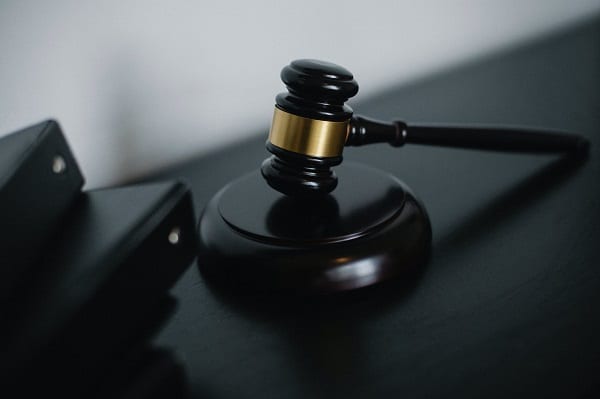BALTIMORE, MD—Four Baltimore County residents are facing federal charges for illegally trafficking guns.
A federal grand jury has returned a superseding indictment charging four men with conspiracy and with engaging in the business of dealing firearms without a license, including privately-made firearms. Charged in the superseding indictment are: Tyjae Bladen, 21, of Parkville; Brian Brownell, a/k/a “Cole,” 31, of Dundalk; Maurice Dacosta, a/k/a “Jr,” 24; and Cameron Taylor, a/k/a “Chino,” 21, both of Parkville. Bladen and Taylor are also charged with illegal possession of machine-guns. The indictment was returned on March 22, 2022, and unsealed this week upon the arrest of Brownell. Bladen and Taylor were charged in the original indictment and remain on pre-trial release. Dacosta is detained on unrelated charges in Baltimore County.
Brownell and Dacosta each had an initial appearance on Thursday in U.S. District Court in Baltimore. Brownell was ordered to be detained pending a detention hearing scheduled for March 31, 2022 at 11:30 a.m.
The superseding indictment was announced by United States Attorney for the District of Maryland Erek L. Barron; Special Agent in Charge Toni M. Crosby of the Bureau of Alcohol, Tobacco, Firearms and Explosives (ATF) Baltimore Field Division; Chief Melissa R. Hyatt of the Baltimore County Police Department, and Commissioner Michael Harrison of the Baltimore Police Department.
According to the indictment, the defendants sold registered, as well as privately-made firearms (PMF), sometimes called ghost guns, which are firearms that lack any identifiable markings. A PMF can be manufactured using do-it-yourself kits sold by several companies. A machine-gun conversion device, sometimes referred to as a “switch,” is used to convert a semiautomatic Glock-type pistol to fire fully automatic. Firearms and machine-gun conversion devices may also be built by using a 3D printer to create the firearm and machine-gun conversion device’s component parts. None of the defendants had a federal firearms license nor were they authorized to transport, manufacture, or deal in firearms.
According to the superseding indictment, the defendants acquired firearms parts to be built into firearms and sold. Dacosta, Taylor, and Bladen are also alleged to have acquired do-it-yourself kits to be built into firearms and machine-gun conversion devices to sell for a profit, as well as using a 3D printer to create firearms and machine-gun conversion devices.
Between October 4, 2021 and January 4, 2022, Dacosta, Brownell, Bladen, and Taylor allegedly sold an undercover officer (UC) a total of 24 firearms, including 20 ghost guns; two confirmed and eight suspected machine gun conversion devices—several that were 3D printed; magazines; and ammunition. The four ghost guns sold by Brownell were AR-15 firearms.
After Dacosta was arrested in Baltimore County on November 9, 2021 on unrelated charges, he allegedly instructed Bladen to continue selling firearms to the UC. The superseding indictment alleges that Bladen met with the UC on November 22, 2021 to sell him a firearm, but the firearm did not work. Bladen continued to communicate with the UC and allegedly arranged to sell the UC three switches and a firearm for $6,500. The superseding indictment alleges that on December 13, 2021, Bladen drove Taylor to the meeting location, where Taylor sold the UC a 9x19mm caliber pistol with no serial number, a magazine, a machine-gun conversion device, and three additional suspected machine-gun conversion devices, all of which were 3D printed, for $6,800. During the sale, Taylor allegedly told the UC that he had already sold 10 switches.
According to the superseding indictment, on January 21, 2022, investigators recovered a 3D printer, four machine-gun conversion devices, and 16 suspected machine-gun conversion devices from Taylor’s residence; a 3D printer and 9mm luger pistol with no serial number from Dacosta’s residence in Baltimore; and a 3D printer from Dacosta and Bladen’s residence.
If convicted, the defendants each face a maximum sentence of five years in federal prison for the conspiracy and for each count in which they are charged with engaging in the business of dealing in firearms without a license. Taylor and Bladen also face a maximum sentence of 10 years in federal prison for each count of unlawful possession of a machine-gun. Actual sentences for federal crimes are typically less than the maximum penalties. A federal district court judge will determine any sentence after taking into account the U.S. sentencing guidelines and other statutory factors.
This case is part of Project Safe Neighborhoods (PSN), a program bringing together all levels of law enforcement and the communities they serve to reduce violent crime and make neighborhoods safer for residents.
Photo by Sora Shimazaki from Pexels

